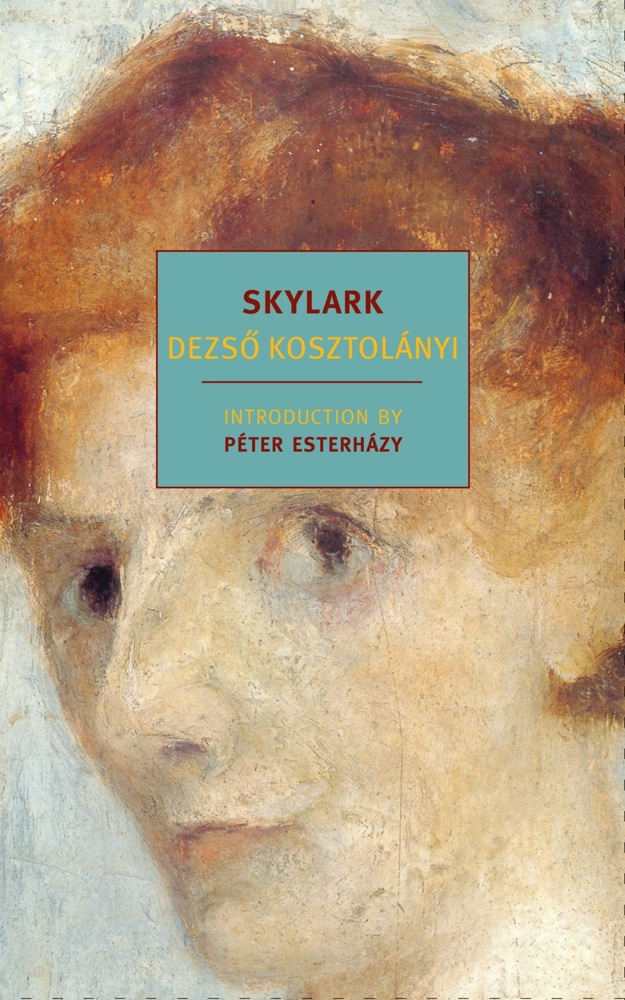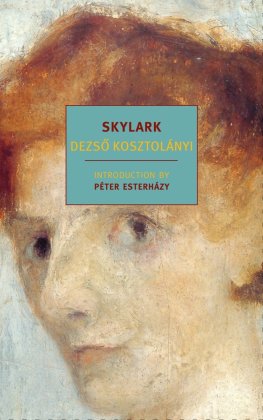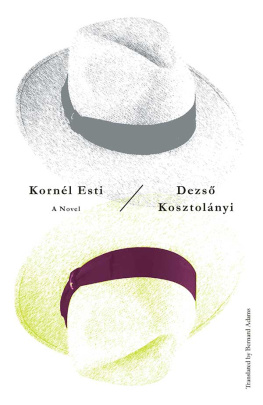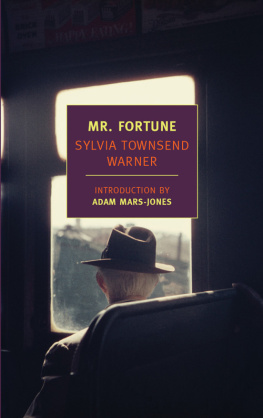Dezso Kosztolanyi - Skylark (New York Review Books Classics)
Here you can read online Dezso Kosztolanyi - Skylark (New York Review Books Classics) full text of the book (entire story) in english for free. Download pdf and epub, get meaning, cover and reviews about this ebook. year: 2010, publisher: NYRB Classics, genre: Detective and thriller. Description of the work, (preface) as well as reviews are available. Best literature library LitArk.com created for fans of good reading and offers a wide selection of genres:
Romance novel
Science fiction
Adventure
Detective
Science
History
Home and family
Prose
Art
Politics
Computer
Non-fiction
Religion
Business
Children
Humor
Choose a favorite category and find really read worthwhile books. Enjoy immersion in the world of imagination, feel the emotions of the characters or learn something new for yourself, make an fascinating discovery.

- Book:Skylark (New York Review Books Classics)
- Author:
- Publisher:NYRB Classics
- Genre:
- Year:2010
- Rating:4 / 5
- Favourites:Add to favourites
- Your mark:
- 80
- 1
- 2
- 3
- 4
- 5
Skylark (New York Review Books Classics): summary, description and annotation
We offer to read an annotation, description, summary or preface (depends on what the author of the book "Skylark (New York Review Books Classics)" wrote himself). If you haven't found the necessary information about the book — write in the comments, we will try to find it.
Skylark (New York Review Books Classics) — read online for free the complete book (whole text) full work
Below is the text of the book, divided by pages. System saving the place of the last page read, allows you to conveniently read the book "Skylark (New York Review Books Classics)" online for free, without having to search again every time where you left off. Put a bookmark, and you can go to the page where you finished reading at any time.
Font size:
Interval:
Bookmark:

The dining-room sofa was strewn with strands of red, white and green cord, clippings of packing twine, shreds of wrapping paper and the scattered, crumpled pages of the local daily, the same fat letters at the top of each page: Srszeg Gazette, 1899.
Beside the mirror on the wall, in a pool of bright sunlight, a calendar showed the day and the month: Friday I September.
And through the window of an elaborately carved wooden case, the sauntering brass hands of a grandfather clock, which sliced the seemingly endless day into tiny pieces, showed the time: half past twelve.
Mother and Father were busy packing.
They were wrestling with a worn, brown leather suitcase. When they had squeezed one last comb into the canvas pocket of the partition, they zipped it shut and lowered it to the floor.
There it stood, ready for the road, bursting at the seams, its bloated belly protruding on either side like that of a cat about to bear nine kittens.
The remaining bits and pieces they packed into a wicker travel basket: lace knickers, a blouse, a pair of felt slippers, a buttonhook and other oddments their daughter had carefully set aside.
The toothbrush, said Father.
Heavens, the toothbrush! nodded Mother. We nearly forgot her toothbrush.
Still shaking her head, she hurried out into the hall and from there to her daughter's room to fetch the toothbrush from the enamelled tin washbasin.
Father pressed down once more on his daughter's belongings, gently stroking them flat and smooth with his palm.
It was not the first time that his brother-in-law, Bla Bozs, had invited them to spend the summer in Tark, to take a well-earned rest on his little plot.
His three-roomed castle stood among ramshackle farm buildings in the middle of a small plain, no more than 150 acres wide. And well they remembered the spacious guest room in the outer wing, its whitewashed walls hung with hunting rifles and antlers.
They hadn't visited for years, but Mother would often speak of her brother's estate and the little reedy brook that hid at the foot of the hill, where, as a child, she had launched her paper boats.
They kept postponing the trip.
But this year, every letter that arrived from the plain closed with the same entreaty: come and see us at last, come as soon as you can.
In May they had finally made up their minds to go. But summer came and went as usual, with preparations for winter, the cooking of preserves, the bottling of apples, pears and cherries.
By the end of August they wrote to say it was too late again. They were still stuck at home, too old to feel like moving. But they'd send their daughter instead. Just for a week. She worked so hard, a break would do her good.
Their relatives were overjoyed with the news.
The postman called every day. Uncle Bla wrote to the girl and so did his wife, Aunt Etelka. The girl wrote back, Mother wrote to her sister-in-law, Father to his brother-in-law, asking him to be sure to wait at the station in person with his chaise, for the farmstead was a good three-quarters of an hour on foot. Everything was agreed.
Yet even in the last couple of days the telegrams went on crossing, clearing up the minutest of details. Now there was no going back.
Mother returned with the toothbrush. Father wrapped it carefully in tissue paper.
They made one last inspection of the room, then, satisfied that nothing had been overlooked, they pressed the lid down on the wicker basket.
But the key refused to turn and the lock kept springing open. Finally, they tied the basket shut with packing twine, father bearing down upon the lid with his hollow chest, the veins bulging on his forehead.
They had all risen with the dawn that day, setting about the task of packing at once, bustling to and fro in their unaccustomed excitement. They had hardly even stopped for lunch; one thing or another would always come to mind.
Now everything was ready.
They set the wicker basket down on the floor beside the suitcase. A luggage trolley rattled over the paved courtyard path that led all the way from Petfi Street, across the garden and right up to the veranda.
A gangling youth strolled in and threw suitcase and basket indifferently on to the trolley before wheeling it out again and heading off towards the railway station.
Father wore a mouse-grey suit, the exact colour of his hair. Even his moustache was the same light shade of grey. Large bags of crumpled, worn, dry skin hung beneath his eyes.
Mother, as always, wore black. Her hair, which she slicked down with walnut oil, was not yet altogether white, and her face showed hardly a wrinkle. Only along her forehead ran two deep furrows.
Yet how alike they looked! The same trembling, startled light in their eyes, their gristly noses narrowing to the same fine point and their ears tinted with the same red glow.
They glanced at the grandfather clock. Father checked his pocket watch, which was a little more reliable. They went out on the veranda and called in unison:
Skylark!'
A girl sat on a bench by the flowerbeds, beneath the horse-chestnut tree. She was crocheting a tablecloth from a ball of yellow cotton.
Only her black hair could be seen, castinglike the leaves of the horse-chestnut tree upon the ground belowa heavy shadow on about two-thirds of her face.
She did not move at once. Perhaps she hadn't heard.
In any case, she liked to sit like this, head bowed, peering at her work even when she had tired of it. The experience of many long years had taught her that this posture suited her best.
Perhaps she heard some sound, but still did not look up. She governed herself with all the discipline of an invalid.
This time they called louder:
Skylark!'
Then louder still:
Skylark!'
The girl raised her eyes to the veranda, where, on the top step, her mother and father stood waiting.
They had given her that name years ago, Skylark, many, many years ago, when she still sang. Somehow the name had stuck, and she still wore it like an outgrown childhood dress.
Skylark breathed a deep sighshe always sighed thus deeplywound up her ball of yellow cotton, dropped it in her work basket and set off towards the little arbour overgrown with vine leaves. So it was time, she thought; the train would soon be leaving; tonight she'd be sleeping at her uncle's on the Tark plain. She waddled along a little like a duck.
The elderly couple watched with fond smiles as she drew near. Then, when her face finally revealed itself between the leaves, the smiles paled slightly on their lips.
It's time to go, my dear, said Father, looking at the ground.
They passed beneath the row of poplars lining Srszeg's only tarmacked street, Szchenyi Street, running in one straight line to the railway station. They might just have been taking one of their daily walks: Mother to the right, Father to the left and Skylark in between.
Mother talked about how she had packed the toothbrush only at the last minute, and explained where she had put this and that. Father carried a white striped woollen blanket and a flask he had filled with good well-water from home, for the journey.
kos Vajkay said nothing. He tramped along in silence, looking at his daughter.
Font size:
Interval:
Bookmark:
Similar books «Skylark (New York Review Books Classics)»
Look at similar books to Skylark (New York Review Books Classics). We have selected literature similar in name and meaning in the hope of providing readers with more options to find new, interesting, not yet read works.
Discussion, reviews of the book Skylark (New York Review Books Classics) and just readers' own opinions. Leave your comments, write what you think about the work, its meaning or the main characters. Specify what exactly you liked and what you didn't like, and why you think so.



